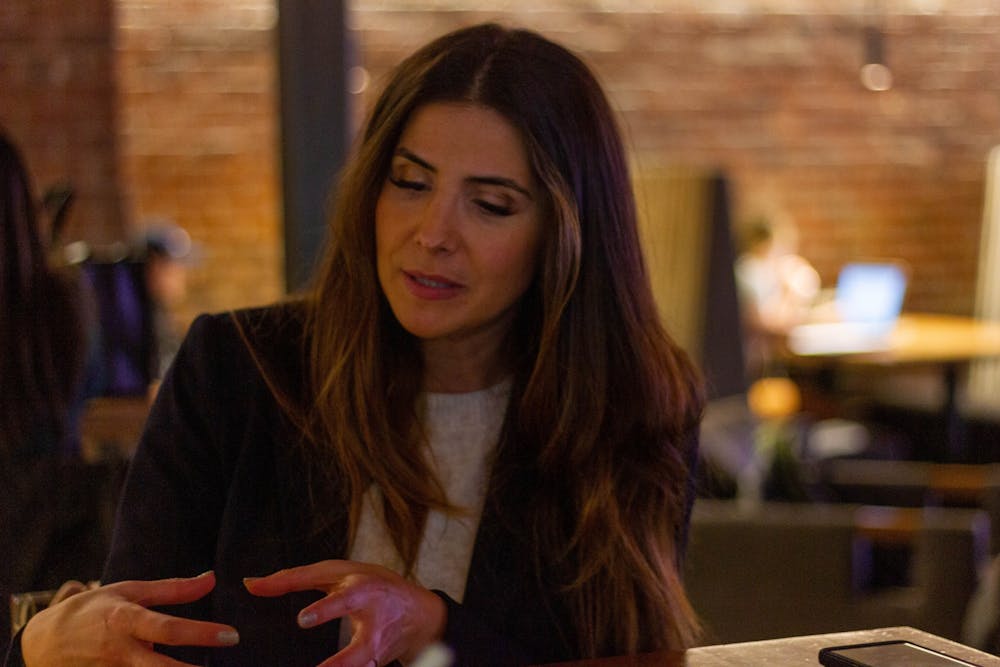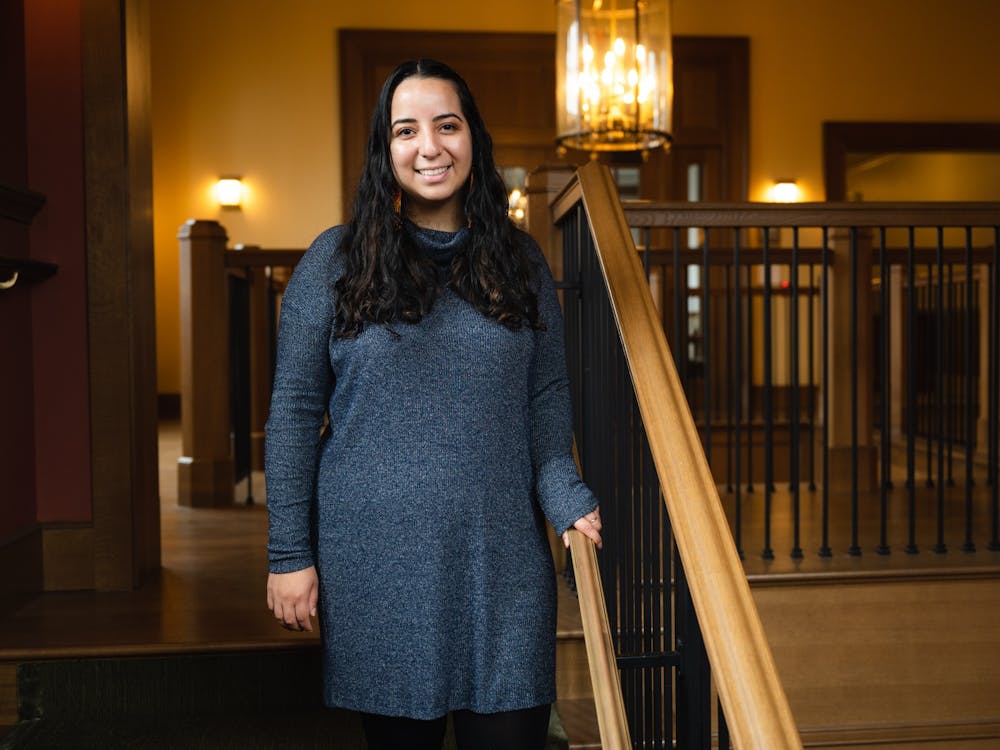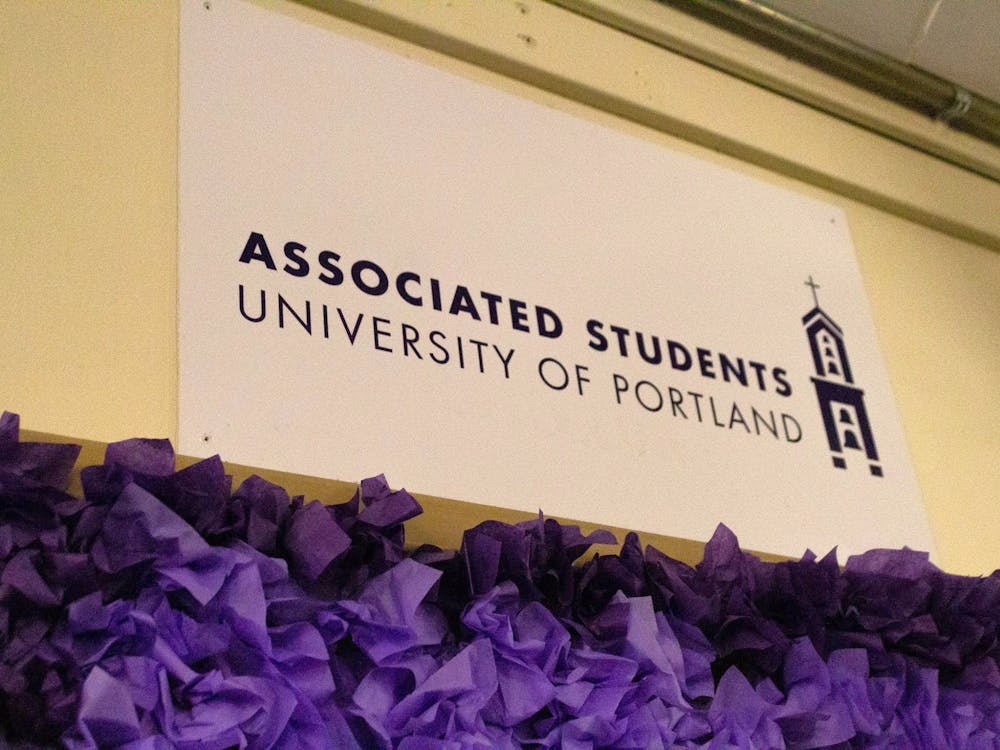When Fationa Aliaj was only 14 years old, she moved to the United States from Albania. At the time, she didn’t speak any English. Her family had just received the U.S. Diversity Visa Lottery, so she would have to learn. But it wouldn’t be the first non-native language she’d have to learn. She already spoke Greek, Italian and Albanian. Now, she speaks five languages: English, Greek, Spanish, Albanian and Italian. She also understands Arabic conversationally.
Aliaj’s love for languages and cultures led her to become a Spanish professor at the University of Portland. As an immigrant herself, Aliaj draws on personal anecdotes to teach students about Latinx social and health issues that specifically relate to immigrant communities. Through her curriculum for hospitals and research on children’s language barriers, Aliaj understands the importance of language in intercultural communication and has made this a focus of her mission as an educator.
Growing up in Albania, Aliaj witnessed the fall of communism as a child. Throughout her upbringing, she spent half the year in an Albanian-Italian school and the other half in Greek school. The multilingual environment of her early education showed her the importance of language and set a foundation for her years to come.
“In Europe, you learn a lot of languages because countries are nearby,” Aliaj said. “It’s part of our education system, so that’s why I’m such a fan of bilingualism in schools.”
While Aliaj experienced bilingualism as a child, this didn’t help her when her parents won the Visa Lottery to immigrate to the U.S. The Visa Lottery, otherwise known as the green card lottery, is a State Department-run program that randomly selects immigrants to bring to the U.S. It is relatively difficult to be granted citizenship from the lottery, as only about one percent of people get accepted. Aliaj explained how the process went for her family.
“My parents won the Visa Lottery so we had to go through certain procedures to make sure that we could qualify to immigrate here, and we had to find a sponsor family,” Aliaj said. “The family basically became our American family, and we grew to love them so much that we consider them to be our American grandparents. Living here, they’ve become a big part of our lives.”
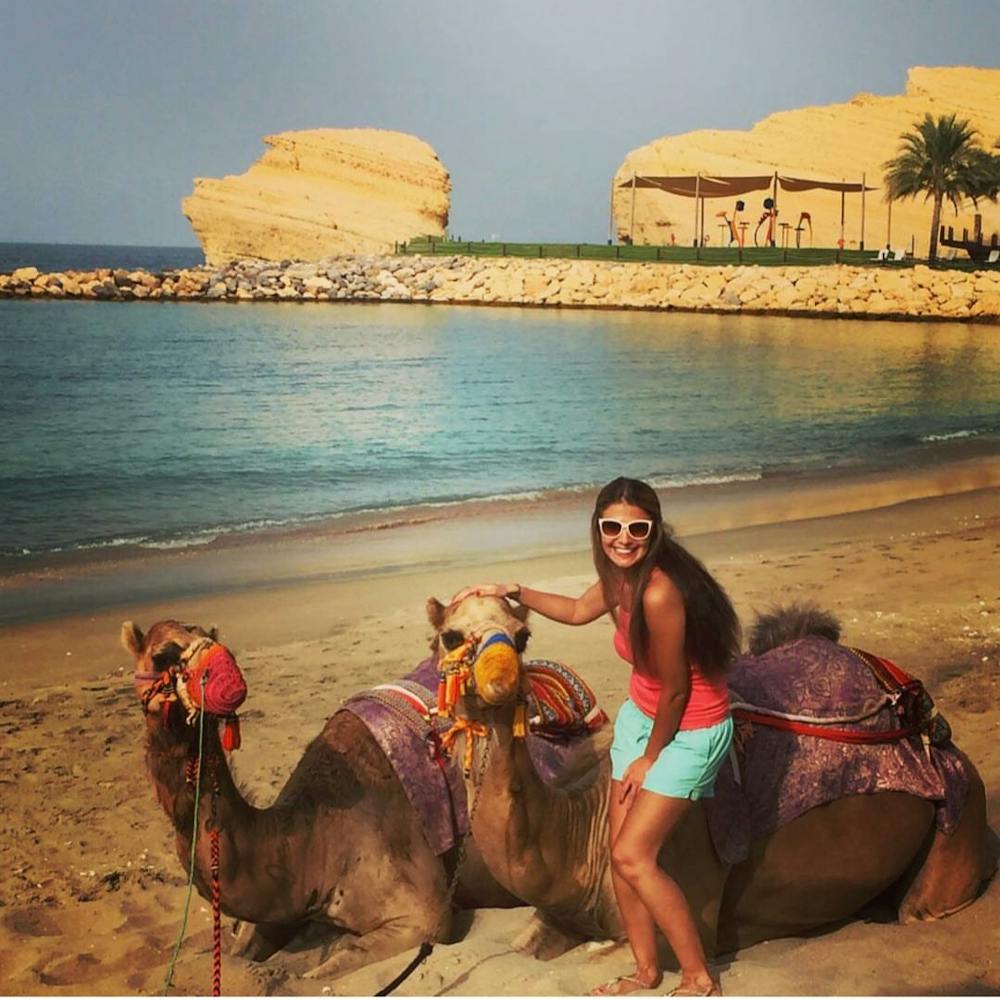
Aliaj spent time in the Arabian Peninsula for a conference in 2015. Photo courtesy of Fationa Aliaj.
Since she didn’t learn English in her European schooling, moving to the U.S. meant that English would be the third language Aliaj would have to learn as a little girl. Aliaj thought back to the first memories of coming to a country where she did not know the language.
“I knew how to say ‘Hi, my name is Fationa and I can count to ten: One, two, three, four, five, six seven, eight, nine, ten,’” Aliaj recounts, laughing. “I just had to smile a lot.”
But Aliaj caught on quickly and was able to add English to her repertoire with little difficulty. As an undergraduate, she planned to major in international law and business and go on to work for the United Nations. However, after studying abroad in Spain for a semester, she decided to switch her major to Spanish.
“In college, I realized how much I really loved foreign languages. I already spoke all these languages, but I didn’t think that they were anything big or important,” Aliaj said. “So, I thought I was going to work for the United Nations with my political science background. But after I came back from Spain, I changed my major to Spanish because there was so much culture to be learned from it. I could identify a lot with the Mediterranean culture in Spain and then I learned that Spain was ruled by Arabs, and could see how all the different cultures influence each other.”
Aliaj went on to pursue a Master’s degree in Latin American Literature and Spanish. She then continued to earn a PhD, and wrote her doctoral dissertation on bilingualism in America — a subject she’s known personally almost her whole life. Her dissertation focused on changing society’s perspective on language to emphasize the benefits of bilingual communities.
Along with traveling to Spain and the Middle East (Bahrain, Abu Dhabi and Dubai), Aliaj has been to many different places in Asia, the Mediterranean and Latin America. Aliaj’s work abroad included teaching at American schools in Saudi Arabia and working in professional development in Asia. Her wide range of cultural experiences from these places has given her a well-rounded view of cultural differences and similarities.
“The more you travel around the world, the more you realize that we are much more similar than we are different,” Aliaj said. “We may have different nuances or cultural differences, but the human spirit and values are things that we all share as humans.”
In teaching Spanish, Aliaj aims to do much more than giving students the basics of a language. She sees language as a gateway to much more than just words.

At the same conference, Aliaj visited a tiger orphanage at a monastery in Phuket, Thailand. Photo courtesy of Fationa Aliaj.
“Through the study of language, you open yourself up to the study of culture, and become this adaptable, flexible human in a way,” Aliaj said. “You open yourself up to so much cross-cultural communication, which is especially important for living in a globalized society.”
Because of this, Aliaj encourages students to take the Spanish major/minor as a complement to another course of study to broaden their range of opportunities in that field.
Though Aliaj speaks four other languages, she specifically chose to teach Spanish because of how widely spoken it is. In her travels, Aliaj noted that though many different cultures speak Spanish, they are all very unique as individual groups of people.
In the classroom, Aliaj tries to combine theory and research with anecdotes of personal experience. Aliaj’s experience traveling to both the Middle East and Latin America gave her an awareness of the cultural similarities between the two places. As someone who has experienced life in both places firsthand, she focuses on comparing and contrasting the two regions in her teaching.
Here in Portland, Aliaj draws heavily on her time abroad to develop her curriculum. Aliaj is passionate about the social and health issues that immigrant communities face. She teaches two classes that focus on this topic. Aliaj has also worked with Southwest Washington Medical Center and other hospitals in the area.
“I design curriculum for doctors and nurses to take an intercultural competence test,” Aliaj said. “What happens is when a lot of immigrant populations go and receive services, the hospitals report a high number of deaths because of miscommunication between the patient and the doctor.”
Aliaj’s curriculum aims to reduce these lapses in communication, whether within the medical world or outside of it. Her hands-on experience outside the classroom is essential to what she teaches about social and health issues.
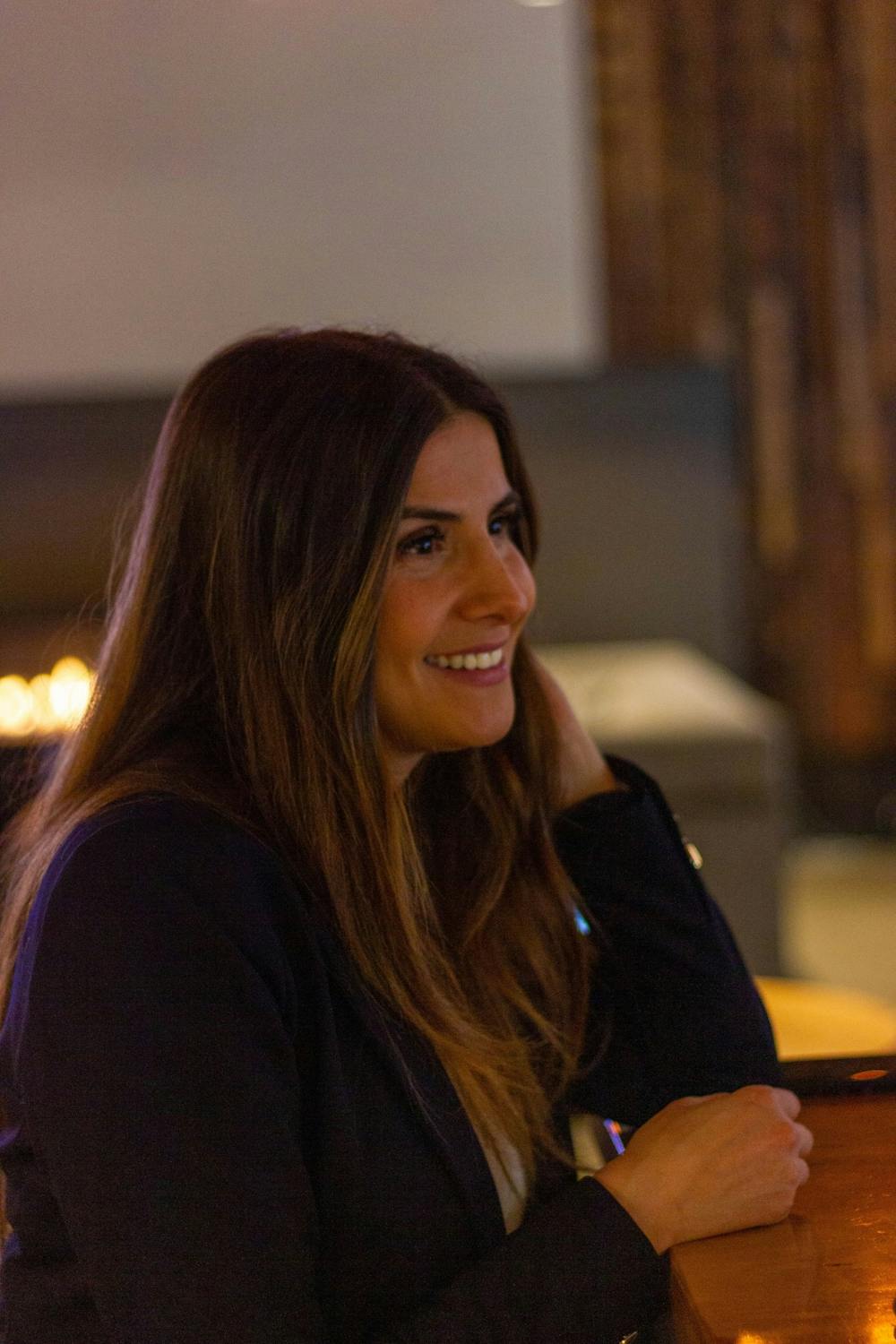
Fationa Aliaj speaks four languages other than English; Albanian, Greek, Italian, Spanish.
Aliaj has also used her knowledge to research educational issues within immigrant populations in Oregon. She worked as an independent researcher for OPB (Oregon Public Broadcasting) on a project called Class of 2025.
“OPB got a grant from the federal government in order to research why 60% of Oregon students are below standards in reading, writing and math,” Aliaj said. “This is alarming because it is the future of our country and we are seeing that there are such low rates. We were looking at a lack of engagement between families and teachers due to language barriers and a lack of diversity.”
OPB’s project is ongoing and hopes to graduate 100% of students in the class of 2025. Aliaj’s role in the project has helped show the problems that come from a lack of communication in education.
Senior organizational communications major Grant Sippel is one of Aliaj’s students and spoke to the benefits of Aliaj’s personal investment in language education.
“Coming from English to Spanish, the structure of getting through all the lessons and techniques every day is kind of difficult to focus on, so the stories and experiences she tells us about help us really engage in the material,” Sippel said. “It helps us understand why it's spoken that way and is a very holistic learning of the language that is better than just telling us to pair certain words together.”
Sippel, who has had Aliaj as a professor both his freshman year and now in his senior year, is currently planning to graduate with a minor in Spanish. Aliaj’s patience and accessibility as an educator influenced his decision to pick up the minor.
Aliaj plans to continue teaching Spanish and has applied her knowledge to different contexts such as media, literature and the medical field. Her focus on the places that languages can lead her students to remains her motivation to continue teaching.
Ajay Davis is a reporter for The Beacon. He can be reached at davisaj22@up.edu.



